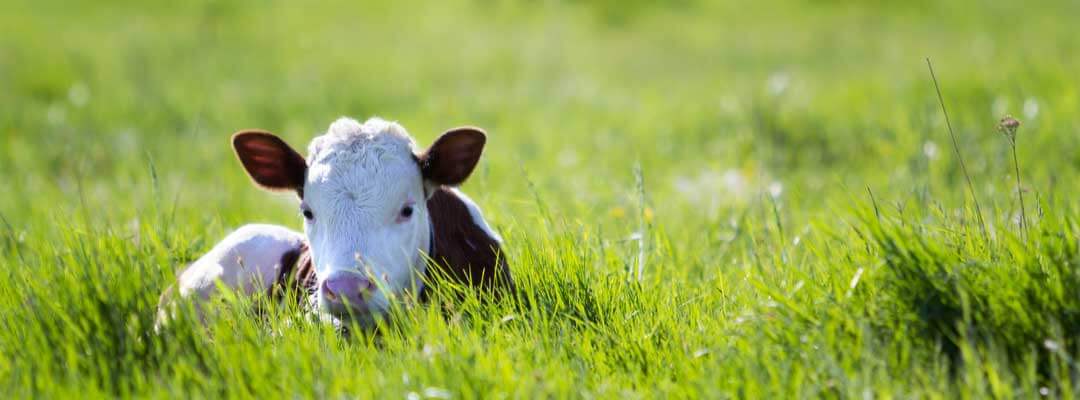Preventing Summer Pneumonia and Pinkeye

Should calves experience a rough winter with extremely cold, wet conditions, they are more susceptible to summer pneumonia, pinkeye and weak calf syndrome.
According to recent reports from the Kansas State Veterinary Diagnostic Laboratory, winter weather conditions can have a lasting impact on calf health, even after winter season’s end. The reason being, following wintry conditions consisting of cold weather and increased levels of mud, a cow’s reserves can be depleted, increasing the risk for calf health challenges.
Weak calf syndrome is the first of the three health challenges a rancher may experience in his herd, right after calving. Also coined dummy calves or fading calves, weak calf syndrome is experienced when newborn calves are weak and unable to rise, stand and nurse. Often, these calves will not last more than three days. Employ these five management practices to help improve cow herd nutrition for healthier calves and decreased risk for weak calf syndrome.
As weather begins to warm, it is easy to think you’re out of the woods, but the health risks caused by winter conditions remain. Summer pneumonia and pinkeye are two conditions experts have linked to animals enduring rough winters
What are signs of summer pneumonia in calves?
How can you help prevent summer pneumonia?
Vaccination programs, combined with sound herd management, are key. By ingesting quality colostrum, calves absorb maternal antibodies that initiate a strong immune system early in life; however, this immunity quickly deteriorates as the calf gets older, making vaccinations even more vital. Vaccines train the calf’s immune system to recognize and fight the viruses and bacteria it encounters later in life. Vaccinating young calves in the springtime will help you and the calf win the fight against summer pneumonia before it begins.
What is Infectious Bovine Keratoconjunctivitis (IBK)?
Commonly known as pinkeye, IBK is a highly contagious ocular disease that primarily affects calves. The disease is caused by Moraxella bovis infection (as well as other strains), which can lead to vision loss.
What are signs of pinkeye in calves?
How can you help prevent pinkeye?
To best prevent pinkeye from impacting your herd, control flies with insecticide impregnated ear tags, mow pastures, minimize dust in hay and feed bunks, provide ample shade and vaccinate against viral diseases, such as Infectious Bovine Rhinotracheitis (IBR). Moraxella bovis bacterins and Endovac-Beef administered prior to fly season may also be helpful.
Keep a consistent, watchful eye on your herd to help secure the best chances for early detection and prevention. Help safeguard your cattle operation’s profitability with vaccinations against common diseases like summer pneumonia and pinkeye, and trusted antibiotics for treatment, available with careful handling and quick shipping from ValleyVet.com.
Help protect calves with:


